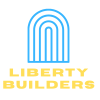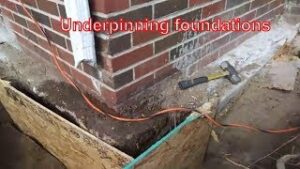Commercial concreting services can enhance the aesthetics and professionalism of a business by making its concrete more durable and easier to maintain than materials such as asphalt.
Commercial construction is a unique field that takes the client’s vision for their project into consideration and requires intensive dialogue between contractors and clients to ensure an end product that satisfies both parties.
Structural Strength
Concrete house slabs Melbourne is an extremely flexible construction material used for foundations of commercial buildings, sidewalks, roads, bridges and many other structures. Concreting is made up of aggregate bound with cement that hardens over time to form a stone-like solid surface – providing durable yet cost-efficient structure suitable for weather conditions and loads of all sorts.
Consider its strength and durability when selecting the type of concrete for your project. A commercial concrete contractor can assist you in selecting the ideal type for you; just be sure to choose a company with a strong track record in quality work.
Commercial concrete is typically measured by its compressive strength, which is determined through testing samples under standardized conditions. Flexural and tensile strengths should also be taken into account; these are usually evaluated via an examination of simple beams rather than testing individual samples directly.
Resistance to Fire
Fire poses a grave threat to buildings, and construction material plays a pivotal role in its resistance. Concrete masonry is noncombustible, meaning that its integrity can remain intact during an explosion without melting away or expanding outward.
Concrete’s fireproof properties come from its inert aggregate materials. Calcium silicate hydrate, the binder in concrete, also remains nonreactive even at extreme temperatures and temperatures above 200 F, protecting masonry structures from heat transfer between exposed surfaces and unexposed ones.
Modern building codes specify fire-resistance ratings for structural elements based on their design and location within a structure. A concrete masonry assembly’s fire resistance depends on factors like thickness, cover material and aggregate type; full-scale ASTM E119 tests should be conducted if it contains aggregate not listed by ACI/TMS 216.1 for testing purposes; additionally hollow core slabs transmit heat more rapidly than solid slabs of equal size in terms of fireproofing capabilities.
Durability
Commercial concrete contractors provide their clients with an array of services. They can be hired to lay concrete for business premises or repair existing structures, as well as offering decorative options that enhance curb appeal and overall aesthetics of businesses.
Commercial concrete is an ideal material for businesses, as its durability and long lifespan make it suitable for heavy loads and harsh weather conditions. Furthermore, its flexibility allows it to withstand high volumes of foot traffic as well as repairs/replacements to be easily completed when necessary.
Concrete is an economical material with minimal maintenance requirements, offering businesses significant cost savings on heating and cooling expenses as well as heat damage prevention. Plus, its fireproof properties help shield it against heat damage; furthermore, commercial concrete can be formed into any shape or space without disrupting business operations; plus its long-term durability provides employees with a safer working environment than any other material choice available today.
Aesthetics
Commercial property owners need to leave an impressive impression with visitors, customers and clients when hosting business premises. A professional concrete contractor can offer their services to give business locations a distinctive yet appealing appearance.
Commercial concreting contractors utilize cutting-edge technological innovations to increase both quality and efficiency in their work, as well as ensure compliance with regulations governing construction projects. For instance, laser-guided screeds and robotic total stations help increase accuracy during leveling and surveying tasks while eliminating human error altogether.
Concrete is a highly adaptable material, easily molding into various shapes and colors to suit individual design preferences. Additionally, decorative concrete can be stained or high-glossed for aesthetic appeal and requires less maintenance than other materials. Crystalline admixtures may be added during mixing to reduce permeability of the mix for permanent waterproof protection.





